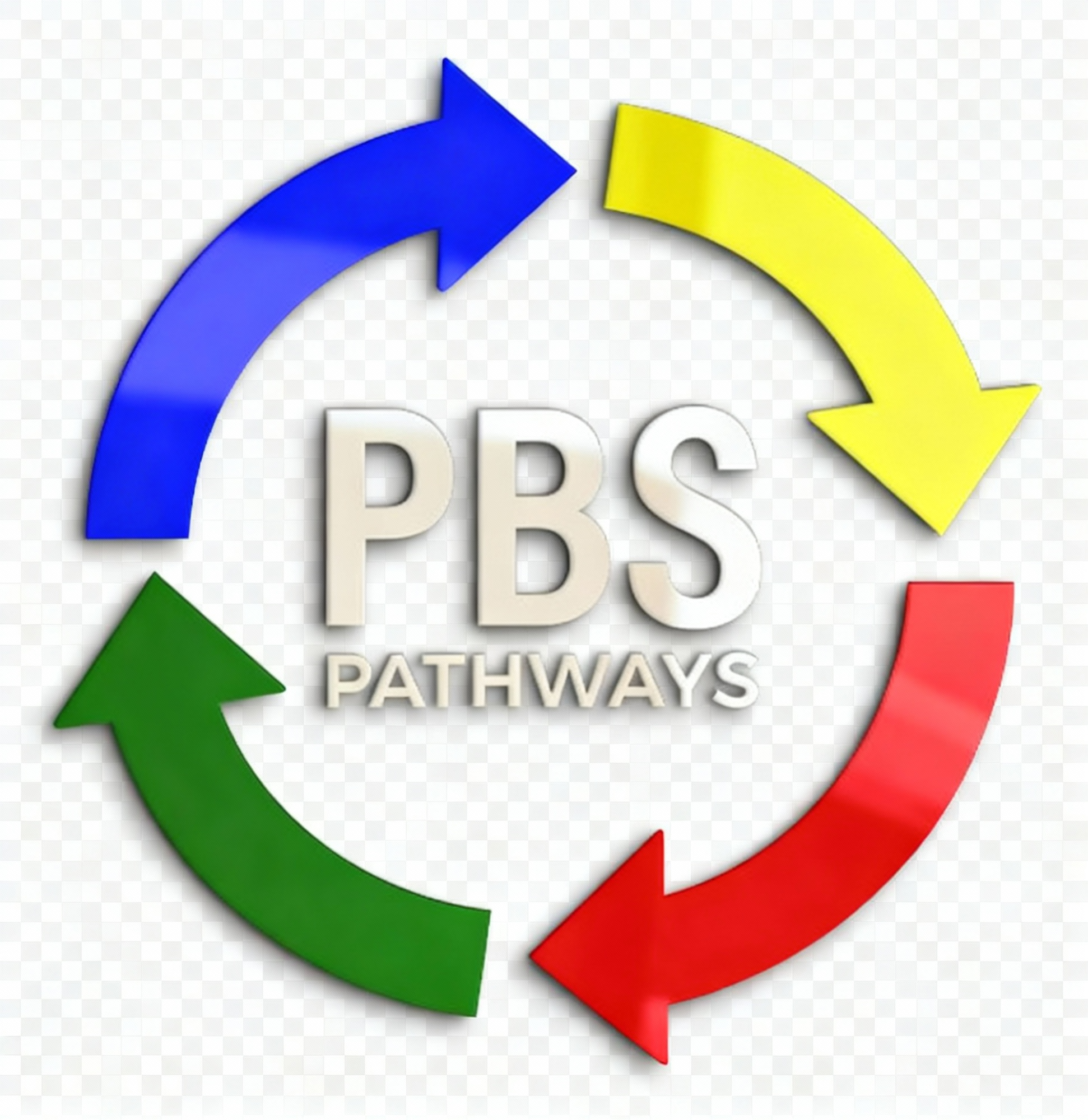ABOUT US
Why PBS Pathways
YOUR PARTNER IN BEHAVIOURAL
& PHYSICAL INTERVENTION COURSES
PBS Pathways mission is to improve knowledge and understanding across services regarding the impact of how diagnoses’ affect how people respond to the world around them, how it affects behaviour.
PBS Pathways was co-produced with people who have lived experiences of a Diagnosis and co-occurring conditions to gain their perspectives and experiences.
We emphasise a holistic, person-centred approach, providing tangible benefits across different levels of
an organisation, its staff, and the people they support.
PBS Pathways mission is to improve knowledge and understanding across services regarding the impact of how diagnoses’ affect how people respond to the world around them, how it affects behaviour. With this knowledge services will promote better approaches to support that aims to improve the experiences and quality of life for children and adults using services for support.
PBS Pathways is a behavioural & physical intervention course which has been developed on the core values of providing high-quality, person-centred and evidence-based services to people, whilst promoting a Positive Behavioural Support (PBS) culture across services.

Tony Hannon
Joint Managing Director
Tony has over 20 years of experience in training course delivery and physical intervention experience.
Since then Ton’y passion has continued to grow, accumulating a wealth of knowledge and experience in the sector.

Stuart Lyons
Joint Managing Director
Stuart has over 20 years of experience in security training. He started working “on the doors” in his 20s throughout the north-west, and worked as a close protection security officer.
He has since moved into behavioural and physical intervention training and helping businesses up and down the country train their staff to share the real-life techniques
What makes
is unique?
PBS Pathways is a tailored program designed to meet the specific needs of individuals and the services that support them. Its unique lesson planning combines practical and theoretical components that reflect each person’s diagnosis and needs.
The pre-course Training Needs Analysis (TNA) assesses the diagnosis and support requirements of those using the service, ensuring that Module 2 focuses on understanding how various conditions – such as Autism Spectrum Condition, Learning Disabilities, and Mental Health Disorders – affect behaviour and coping strategies.
This approach guarantees a customised learning experience for participants.
Benefits to you
The training offers a tailored approach to enhance support for individuals, providing organsations with a competitive edge and aligning with best practices for positive CQC inspections and restraint reduction strategies. PBS Pathways is pursuing certification against the Restraint Reduction Standards with BILD ACT and UKASS. This accreditation ensures high-quality support and potential cost savings through:
– Implementing effective support strategies.
– Significant savings by developing in-house expertise via PBS Pathways Annual Licence Packages.
– Ongoing training to build organisational competence.
– Flexibility in scheduling training.
– Attracting and retaining staff with professional development opportunities.
Benefits to staff and carers
The training offers a deep understanding of Diagnosis and Co-Occurring Conditions and its impacts on behaviour. This knowledge enables participants to develop proactive strategies and skills to manage situations effectively.
The training empowers staff with confidence and competence, enhancing their ability to provide better care and support, gain new skills through an interactive learning environment, learn from each other through participation and interactive activities, feel more confident, competent, and effective in their jobs and receive ongoing support even after the course with PBS Pathways Licence Packages.
Benefits for people
PBS Pathways trains staff to understand individuals’ specific needs and behaviours, emphasising preventative and compassionate support. Co-produced with those who have lived experiences, it ensures the training is authentic.
As a result, individuals receive higher quality support, feel more secure, and have their needs acknowledged. This holistic, person-centered approach leads to improved quality of life and positive experiences for both staff and the people they support.
Experienced trainers
PBS Pathways was co-produced with individuals who have experienced a diagnosis and co-occurring conditions, ensuring that it authentically represents their perspectives.
Some participants have shared their experiences in filmed interviews, discussing what helps them and the challenges they face. These interviews are included in the course to enhance participants’ understanding of the people they serve.
Trust
We focus on building long term trust with our customers, so they can achieve better and safer outcomes for the long term.
Compliance
We ensure all our techniques are compliant with the latest industry practices and standards.
Targeted Solutions
We provide targeted solutions for all types of businesses that need to undertake intervention techniques.
Reliable Support
Our dedicated team provides ongoing support and advice.
Expert Team
Our trainers undergo rigerous selection to ensure they meet our high standards and have real-life experience of the content.
Latest Techniques
Our courses are built on the latest thinking and best practice experience.
At PBS Pathways, we are committed to providing the best intervention courses for organisations to use, with practical techniques and insights that are easy to remember and practical.
Outstanding
quality every step
of the way.
COLLABORATIVE SOLUTIONS
ACROSS SECTORS
We collaborate directly with care homes, agencies, prisons , children’s care homes, schools and more.
We take great satisfaction in working side by side with our clients and seeing staff increase in confidence.

COURSES OVERVIEW
Module 1
Behavioural Thermometer Pathways.
Module 2
Brain Pathways and Neuro-Divergence and Differences.
Module 3
Proactive Working & Positive Behavioural Support Pathways.
Module 4
Differences in Skill Development & Retention.
Module 5
Identifying Slow & Fast Burners, the early warning signs of an escalation in the behavioural thermomotor and strategies to cool the behavioural thermometer.
Module 6
Teaching of Personal Safety Pathways.
Module 7
Behavioural Thermometer Crisis & Effective Responses.
Module 8
Positive Culture Pathways.
Module 9
Health & Safety Pathways.
Module 10
Legal & Ethical Pathways.
Module 11
Teaching of Supportive Holding Pathways.
Module 12
Recovering from Behavioural Thermometer Crisis.
Module 13
Reflective Practice and Restraint Reduction.
Module 14
Theory Quiz and Learner Assessment.
Module 15
Teaching of Advanced Supportive Holding Pathway.
PBS Pathways

